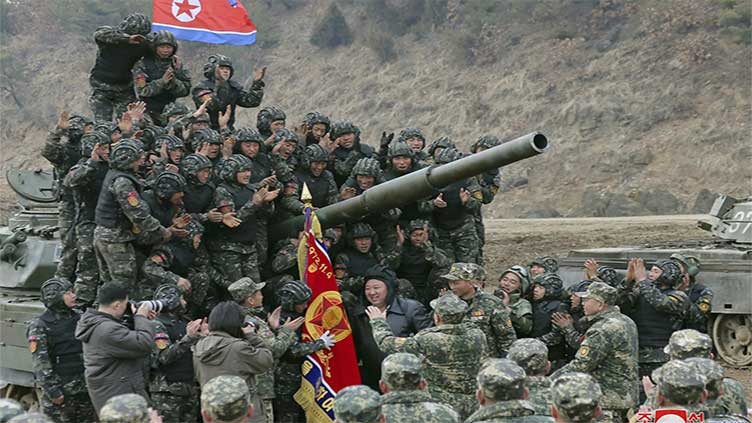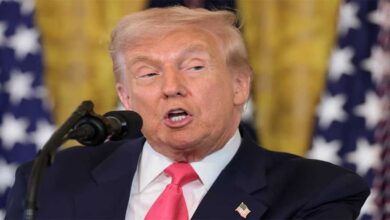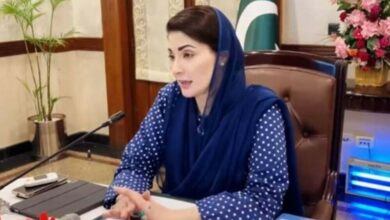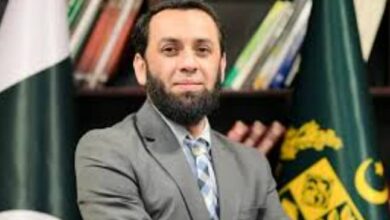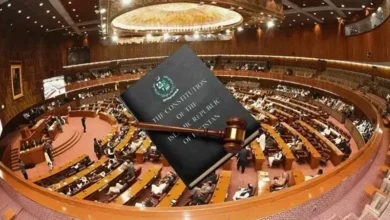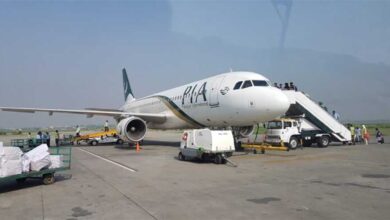SEOUL: The thousands of young soldiers North Korea has sent to Russia, reportedly to help fight against Ukraine, include many elite special forces, but that hasn’t stopped speculation they’ll be slaughtered because they have no combat experience, no familiarity with the terrain and will likely be dropped onto the most ferocious battlefields.
That may be true, and soon. Observers say some of the troops have already arrived at the front. From the North Korean perspective, however, these soldiers might not be as miserable as outsiders think. They may, in fact, view their Russian tour with pride and as a rare chance to make good money, see a foreign country for the first time and win preferred treatment for their families back home, according to former North Korean soldiers.
“They are too young and won’t understand exactly what it means. They’ll just consider it an honor to be selected as the ones to go to Russia among the many North Korean soldiers,” said Lee Woong-gil, a former member of the same special forces unit, the Storm Corps. He came to South Korea in 2007. “But I think most of them won’t likely come back home alive.”
Troop deployment is Kim’s ‘big gamble’
NATO on Monday confirmed that North Korean troops have been sent to Russia to aid in its almost three-year war against Ukraine and that some have already been deployed in Russia’s Kursk border region, where Russia has been struggling to push back a Ukrainian incursion.
Worries about North Korea’s likely participation in the Russian-Ukraine war were highlighted this week when the Pentagon said North Korea has sent about 10,000 troops to Russia, and that they will likely fight against Ukraine “over the next several weeks.” South Korea’s presidential office said Wednesday that more than 3,000 North Korean soldiers have been moved close to battlefronts in western Russia.
North Korea’s troop deployment could mark a serious escalation of the almost three-year war. It caught many outside observers by surprise because North Korea has its own security headache, a festering standoff with the United States and South Korea over its nuclear program.
Large North Korean troop casualties would be a major political blow for the country’s 40-year-old ruler, Kim Jong Un, whose government hasn’t formally confirmed the deployment. But experts say Kim may see this as a way to get much needed foreign currency and security support from Russia in return for joining Russia’s war against Ukraine.
“Kim Jong Un is taking a big gamble. If there are no large casualty numbers, he will get what he wants to some extent. But things will change a lot if many of his soldiers die in battle,” said Ahn Chan-il, a former North Korean army first lieutenant who is now head of the World Institute for North Korean Studies think tank in Seoul.
Ordinary soldier’s wage is less than $1, defectors say
The Storm Corps, also known as the 11th Corps, is one of Kim’s top units. Its main missions would be infiltrating agents into South Korea, blowing up important facilities in the South and assassinating key figures in the event of war on the Korean Peninsula.
Lee, who served in the Storm Corps in 1998-2003, recalled that his unit received better food and supplies than other units, but many members still suffered from malnutrition and tuberculosis.
Despite a gradual economic recovery in North Korea over the past 30 years, defectors say the average monthly wage for ordinary North Korean workers and soldiers is less than $1. They say many people engage in capitalist market activities to make a living because the country’s state rationing system remains largely broken.
Russia is expected to pay all the costs related to the deployment of North Korean troops, including their wages, which observers estimate will be at least $2,000 per month for each person. About 90% to 95% of their stipends will likely go to Kim’s coffers, and the rest to the soldiers. This means one year of service in Russia would earn a North Korean soldier $1,200 to $2,400. That’s big enough to prompt many young soldiers to volunteer for risky Russian tours, former soldiers say.
Ahn said North Korea will likely offer other incentives meant to elevate the social standings of soldiers, such as membership in the ruling Workers’ Party and the right to move to Pyongyang, the country’s showcase capital. Kang Mi-Jin, a defector who runs a company analyzing North Korea’s economy, said even family members of soldiers sent to Russia could be given benefits such as good houses or entrance to good universities.



